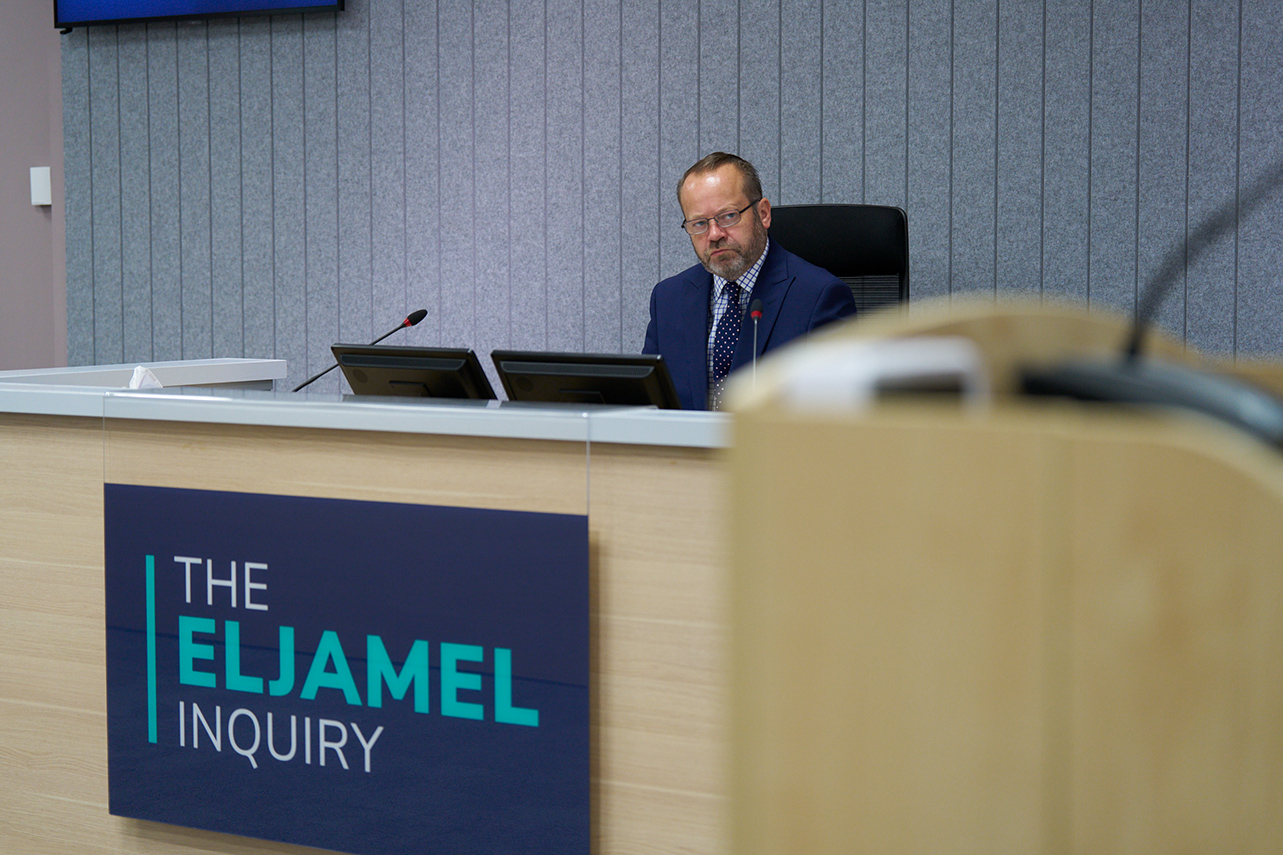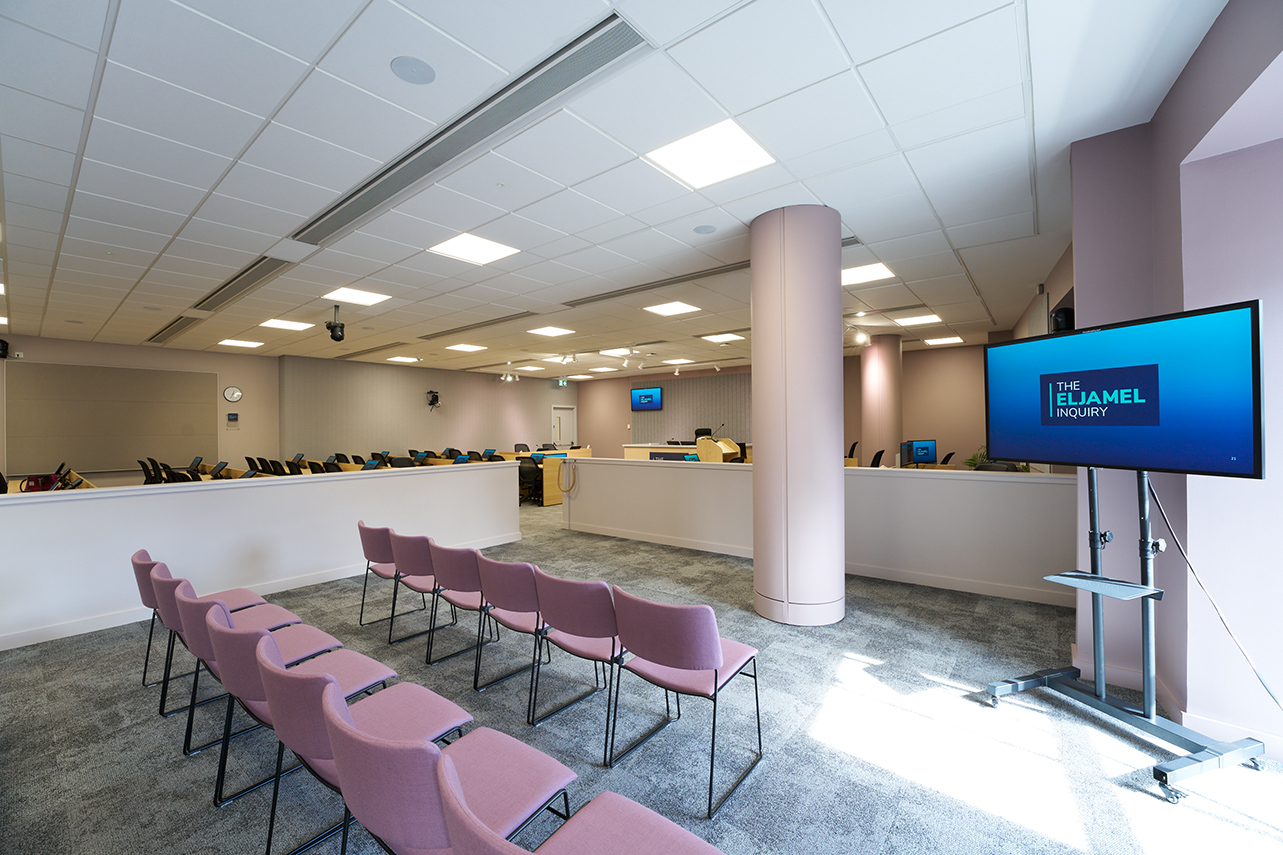Eljamel Inquiry announces plans for hearings
The Inquiry expects to begin hearing evidence in public from February 2026

Lord Weir, Chair of the Eljamel Inquiry
Former patients will be offered chance for 'real, active participation'
The Eljamel Inquiry “will seek to create a bespoke approach for a trauma-informed public inquiry”.
That was the key message from the Inquiry’s Senior Counsel, Jamie Dawson KC, as he set out its plans during a Preliminary Hearing in Edinburgh.
He added: “The Inquiry’s trauma-informed policy will play an important part in the engagement strategy, given the number of key stakeholders in our work who have experienced trauma as a result of their experiences.”
Mr Dawson said the Inquiry’s protocols and principles – setting out how it will go about its work – also “represent a genuine attempt on the part of the Inquiry team and ultimately the Chair to seek to tailor the work of this Inquiry to its particular background, remit, stakeholders and ambitions”.
He stressed that the Inquiry’s principles and systems “have been devised to try to be sensitive to its particular remit, its particular timing, its particular stakeholders and the need to avoid perceived mistakes which have been made by other investigations, both into the Eljamel affair and other public inquiries”.
Mr Dawson added: “This is the least our participants can expect and our statutory responsibilities demand.
"Where these expectations and the Inquiry’s ambitions are frustrated by others, we will make every effort and take every step to seek to put a stop to that.”
Former patients of Mr Eljamel would have “opportunities for real, active participation in the work of the Inquiry”, said Mr Dawson.
This includes the invitation to contribute to the Inquiry’s List of Issues – an important document detailing the specifics of what the Inquiry will investigate.
They will also be asked for their consideration and feedback on another key document – the letter of instruction – which will go to all the expert neurosurgeons taking part in the Independent Clinical Review (the “ICR”).
Former patients of Mr Eljamel can ask to have their cases reviewed by the ICR.
This is a separate process running in parallel to the Inquiry.
However, the findings of the ICR will provide important clinical evidence for the Inquiry.
Mr Dawson told the Preliminary Hearing that the Inquiry has so far compiled a list of 50 “priority cases” for the ICR to examine first.
He said: “This has been done based on a triage system which the inquiry has devised to try to get as wide a flavour of what went wrong clinically, in as wide a variety of surgical cases, over as wide a timescale as possible.
“This does not mean that all cases are not important – they are. This does not mean that all applicant statements and all reviews will not be examined by the Inquiry – they will be.
“We have devised this system to allow us to make progress on as sound a basis as we can at present, in light of where the ICR has reached at this moment.
“Evidence from subsequent cases which are reviewed will come to the Inquiry in due course, will add to the clinical picture and will be added into our analysis as we go along.”
The Inquiry has been set up to examine the professional practice and oversight of former Tayside neurosurgeon, Sam Eljamel.
Mr Dawson said its Terms of Reference are “wide-ranging and will enable and require a detailed investigation into systems surrounding the professional practice of Mr Eljamel over the whole span of his career in Scotland and beyond”.

The Preliminary Hearing is the first public hearing held by the Inquiry since it was formally set up in April 2025.
Mr Dawson set out plans for future hearings and provided an update on the Inquiry’s evidence gathering.
He told the hearing in Edinburgh that the Inquiry currently plans to hold six sections of evidence.
The first phase of evidential hearings - Section 1 – is expected to begin in February 2026.
This will set out the “general background”, with expert witnesses being called to cover areas including neurology, medical ethics, and health administration.
Section 1 will also include the career trajectory of Mr Eljamel and evidence relating to document management systems within NHS Tayside.
Section 2 will follow in Spring of 2026, when the Inquiry will hear evidence from some of the surgeon’s former patients, including their experiences of sub-standard care and complaints processes.
A timetable for subsequent sections will be developed in due course.
Section 3 will cover evidence from medical and other professionals, including examining the involvement of the GMC in matters relevant to the Inquiry’s Terms of Reference.
Section 4 will hear evidence from other organisations which could or should have had a role in oversight in the interests of Mr Eljamel’s patients, while Section 5 will hear evidence from representatives of NHS Tayside and the Scottish Government.
The Inquiry will conclude in Section 6 by considering what lessons could be learned from the evidence gathered.
The Inquiry will also hold a hearing in late November or early December 2025 to allow for opening statements from core participants.
To date, Mr Dawson confirmed that formal requests for evidence have been drafted to a significant number of organisations, including NHS Tayside, the Health and Safety Executive, General Medical Council, BBC, Police Scotland, and the private healthcare provide, Circle Healthcare.
The Inquiry has begun the process of recovering medical records and complaints files for former patients of Mr Eljamel whose cases are believed to hold “particular significance” for the work of the Inquiry.
Several attempts have also been made to contact Mr Eljamel overseas and the Inquiry will “continue to use what avenues are available to it” to seek to contact Mr Eljamel.
You can re-watch the morning and afternoon sessions of the Preliminary Hearing on the hearings page.
